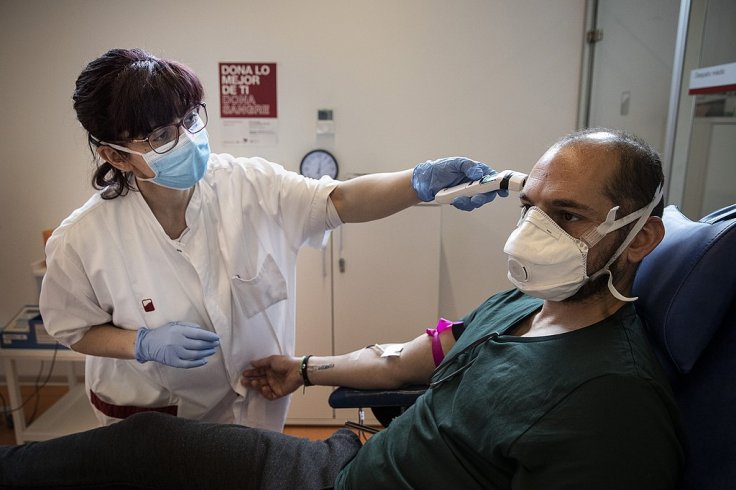The Food and Drug Administration of the US on Saturday, November 21 agreed to allow emergency use of a second antibody drug to help the immune system fight the novel Coronavirus, an experimental medicine which was given to President Donald Trump when he tested positive for COVID-19 in October.
The federal agency authorized the use of the Regeneron Pharmaceuticals Inc. drug to try to prevent the worsening conditions in Coronavirus patients with mild-to-moderate symptoms. The medication is given as a one-time treatment through an IV. The agency allowed its use in adults and children who are aged 12 or above and those who are at high risk of developing severe illness from COVID-19.
"The FDA remains committed to advancing the nation's public health during this unprecedented pandemic. Authorizing these monoclonal antibody therapies may help outpatients avoid hospitalization and alleviate the burden on our health care system," said FDA Commissioner Stephen M. Hahn, in a statement.
Regeneron Emergency authorization
The emergency authorization allows the use of the drug to start while studies are continuing to establish its safety and effectiveness. As per the early research results, the Regeneron drug reduces Coronavirus related hospitalization and emergency room visits in patients who are at high risk for disease progression.
The initial doses would be available to roughly 300,000 COVID-19 patients through a federal government allocation program. Those patients will not be charged for the drug but they would need to pay part of the cost of giving the IV. This drug is the combo of two antibodies to enhance the chances of effectiveness.

However, earlier this month FDA approved emergency authorization to a drug from Eli Lilly that also is still being studied. It is impossible to know whether the Regeneron drug helped Trump recover, as he received many treatments and there are several COVID-19 patients who recover on their own.
Along with other medical products, the FDA authorized the Regeneron drug to speed up the availability of the experimental drugs during the Coronavirus pandemic. Usually, the agency needs "substantial evidence" to show that a drug is safe and effective, based on larger and rigorously controlled patient studies.
But during a healthcare crisis like the Coronavirus pandemic, which affected more than 58 million people in the world and killed over 255,900 Americans, the agency can lower those standards and require only that an experimental treatment's potential benefits outweigh its risks.
However, the emergency authorization of the drug functions as a temporary approval for the duration of the pandemic. To receive full approval, Regeneron needs to submit additional research that would define the ultimate safety and benefit of the drug for the patients.









